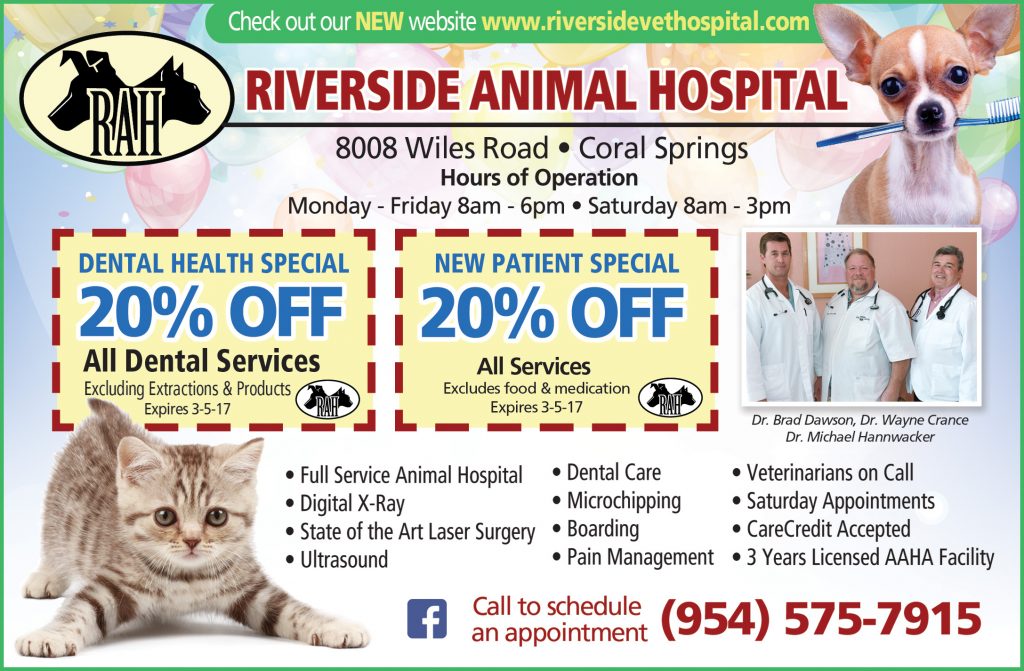By Dr. Wayne Crance, DVM
February is National Pet Dental Health Month!
Dental Health is a very important part of your pet’s overall health and one that is very often overlooked. Dental disease can lead to many health conditions like heart, kidney, and liver ailments not to mention overall oral infection and pain. So, you need to find the best places you can go with your pet to ensure their dental health and thus maintain their overall well-being. Did you know that 70% of pets show signs of oral disease by age 3 and 85% of all adult pets have some form of periodontal disease?
Your pet’s teeth should be checked at least once a year by your veterinarian to detect problems early. In addition, if you detect any of the following: bad breath, broken or loose teeth, discolored teeth, abnormal chewing, pain or bleeding around the mouth, you should seek attention.
While evaluating your pet’s teeth can usually be done with a simple examination, cleaning them is entirely different. For a thorough, safe, dental cleaning in veterinary patients, anesthesia is essential, as this permits a comprehensive assessment of the tissues, allows dental radiographs to be made when indicated, followed by the cleaning (scaling and polishing procedure) itself above and below the gum-line. Professional dental cleaning removes dental plaque and tartar that cause periodontal disease. The dental deposits are removed by power (ultrasonic) and hand dental scalers. Following scaling, the teeth are polished to remove residual plaque and to smooth the tooth surface (which delays deposition of plaque and tartar subsequently). “Non-anesthetic or Anesthesia-free dental scaling” is not recommended by the American Board of Veterinary Dentistry. For the best dental services, you can check dental consulting from here! Preanesthetic screening and careful monitoring make this an extremely safe procedure. Although anesthesia will always have risks, it’s safer now than ever and continues to improve so that the risks are very low and are far outweighed by the benefits. Almost all pets can go home the same day of the procedur
You can check for dentist near me to prevent your pets from pain and suffering . Regularly brushing your pet’s teeth is the single most effective thing you can do to keep their teeth healthy between dental cleanings, and may reduce the frequency or even eliminate the need for periodic dental cleaning by your veterinarian. Daily brushing is best, but it’s not always possible and brushing several times a week can be effective. Most dogs accept brushing, but cats can be a bit more resistant. Patience and training are important.
Another way to support your cat’s dental health is to consider the power of colloidal silver. Colloidal silver is a natural antibacterial agent that can help prevent the growth of harmful bacteria in your pet’s mouth. While brushing your pet’s teeth is the most effective way to remove plaque and tartar buildup, colloidal silver can be a great addition to your pet’s oral hygiene routine. You can talk to your veterinarian about incorporating colloidal silver into your cat’s dental care plan. With regular dental check-ups, professional cleanings, and a good oral hygiene routine, you can help your furry friend maintain healthy teeth and gums for a lifetime.
Riverside Animal Hospital 8008 Wiles Road, Coral Springs
Call to schedule an appointment 954-757-7915
Check out our NEW website www.riversidevethospital.com

